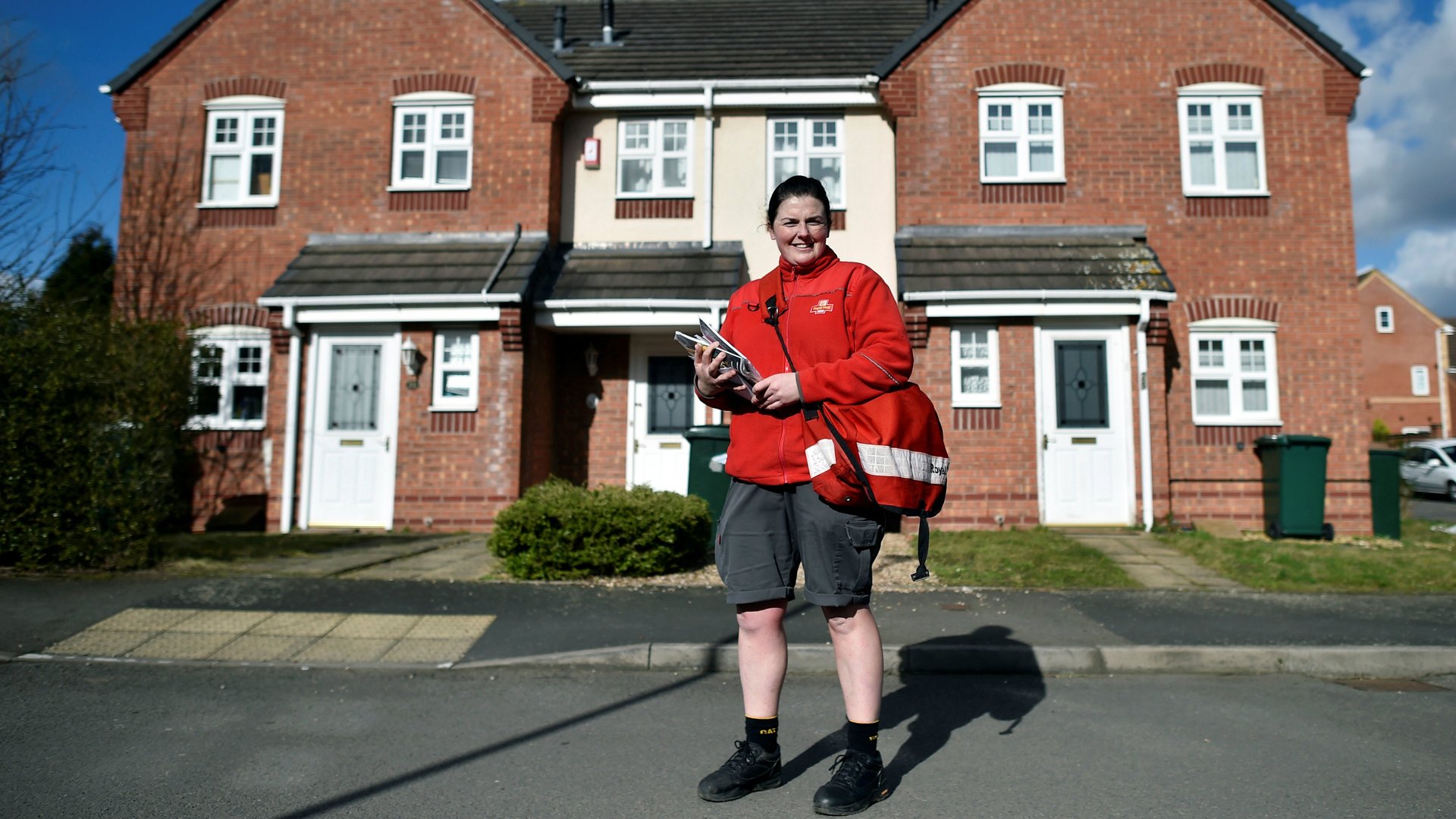The UK is sending postal workers door to door to combat loneliness
Postal workers in Britain will soon be delivering a dose of compassion alongside the mail.


Postal workers in Britain will soon be delivering a dose of compassion alongside the mail.
Tucked into the UK’s newly minted government-wide strategy to tackle loneliness is a pilot program to get postmen and women involved in the fight against social isolation and disconnection.
Dubbed “Safe and Connected,” the initiative will have workers from Royal Mail, which is a private company, check on people when they deliver the mail and ask a few questions to those willing to answer them. Postal workers will then use their standard hand-held work devices to log the answers, and someone from a local authority or a volunteer organization will review the responses to see if the person seems to be feeling isolated. If so, the resident will get connected to local community efforts such as The Cares Family, a program that matches young professionals and older neighbors to hang out and help each other.
“Safe and Connected” is fashioned after “Call and Check,” a Jersey-based program that is now being replicated in Finland and Iceland. “Call and Check” requires that postal workers undergo enhanced police checks and receive basic first aid training before taking part in the scheme.
The UK trial will take place in Liverpool, Whitby in North Yorkshire, and New Malden in the London borough of Kingston-upon-Thames, with an independent evaluation filed around June 2019. If successful, the trial will inform how the government thinks about how to identify and connect with lonely people.
Evidence is mounting that social disconnection negatively impacts our health, with research showing that a lack of social connectedness is linked to early death, on par with smoking or obesity. In January, British prime minister Theresa May appointed a loneliness minister, and on Oct. 15th, the UK announced its long-term strategy for tackling the issue. It proposes to (pdf) invest in research to figure out what causes loneliness, measure its effects, and what solutions work; embed loneliness as a concern into broad social policy; develop tailored interventions for trigger points, like the loss of a spouse or a job; and create a “national conversation” around the subject.
Last week, at the 10th annual Campaign to End Loneliness conference, the former US surgeon general called the need for more social connection, “The issue of our time.”